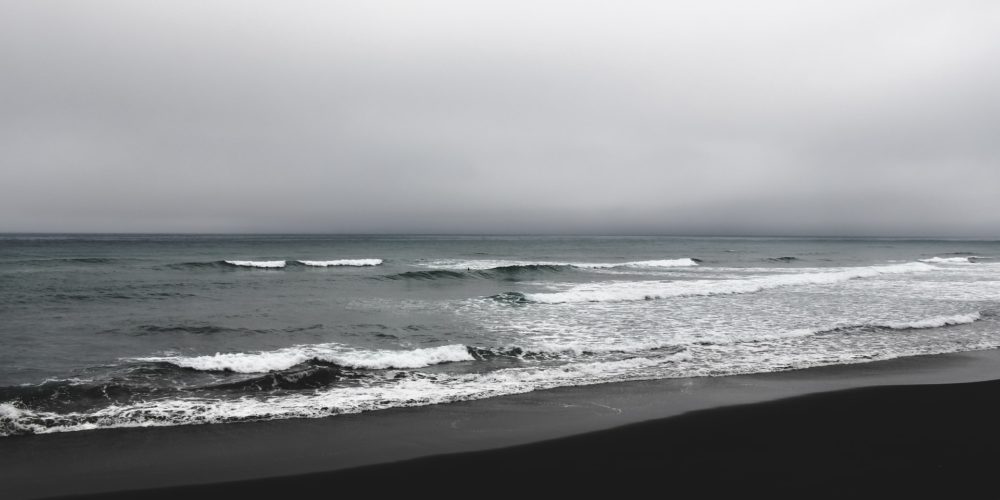
Published June 18, 2021
It’s an old joke but a true one: Nobody wants to live to be 100. . .except the guy who’s 99. Man’s “oldest and deepest desire,” J.R.R. Tolkien once wrote, is “the Great Escape: the escape from death.” Life is a precious gift. Nobody really wants to die. There’s too much intuitively wrong about death. We can feel it. We’re meant for something more than a blank screen when our batteries run out. And this can make reading about death on a warm and fertile summer day, 15 months into COVID lockdowns, masks, and media-fueled paranoia, about as welcome as an infected tooth.
But alas death, in whatever form, doesn’t take a holiday. How we deal with it in our laws, our rituals, and even our storytelling, says something profound about our humanity or our lack of it. COVID created unexpected time to read and think. In my case, I turned again to Nevil Shute’s 1957 novel, On the Beach. I’ve read this book five times in as many decades. I never tire of it. Written at the height of the Cold War, the story is set in Melbourne, Australia, the world’s southernmost major city at the time. An atomic war has devastated the northern hemisphere. Everyday life continues below the equator. But radiation gradually drifts south to poison the rest of the planet. The radiation makes a clean sweep. “No man left behind” takes on a new and very different kind of meaning.
If this sounds sobering, it is. But what redeems the story from being just another political homily or exercise in toxic despair is the genius of Shute’s writing. He has a spare, understated style. This leaves room for his characters to become intensely alive, and intensely sympathetic, as they face an unavoidable end. As the novel makes clear, Australia had no role in the conflict that will extinguish its people. The war was quick, baffling, and final. But the characters do not give in to bitterness. They do not surrender their humanity.
Those characters – a married couple with an infant daughter, a repentant scientist, a marooned American submarine captain relentlessly faithful to a wife back home whom he knows is surely dead, a young woman desperate to be loved in her remaining few months of life – succeed in maintaining their dignity to the very end. While not hostile to religion, On the Beach is very far from a “Christian” novel. Faith is little more than nostalgia, and for those who wish it, government-sponsored suicide offers a final “escape” from radiation’s ravages. But the novel nonetheless leaves an indelible memory for its portrait of the human predicament: a mix of folly and courage, denial and acceptance, beauty and tragedy.
Of particular interest is the novel’s treatment of sex: There’s none of it. Shute grounds the power of his story in the human capacity to master the self, to discipline emotion and desire, to remain faithful to one’s duty – including, for the American captain, the memory of his family. Instead of subverting the book’s believability, this does the opposite. It increases the story’s poignance as the characters long for more time, struggle to sustain some sense of normalcy, and grasp life’s immeasurable value, even if too late.
Shute’s book had global impact at the time. It remains an unforgettable read. Critics called it “the most important novel of the Atomic Age.” Stanley Kramer produced a superb screen adaptation in 1959, with Gregory Peck and Ava Gardner in starring roles. The movie is true to all the book’s key elements, with one telling change. In the film, as radiation reaches the outskirts of Melbourne, the American captain (Peck) and his young Australian woman friend (Gardner) finally surrender to an implied sexual relationship. Kramer felt this would appeal to movie-going audiences in a doomed romance kind of way, but it enraged Shute. For the author, any hint of infidelity, no matter how extreme the circumstances, violated the nobility of his characters and the dignity of their story. He had an ugly row with Kramer and hated the film until his death a year later.
Given that history, we can only imagine what Shute might think of the Australian television remake of On the Beach in 2000. It’s poorly written, oddly cast, and badly acted. It’s also soaked with antiwar messaging that’s as subtle as a rhinoceros. And its portrait of humanity’s last days is one of chaos, despair, and cynicism. The passage of 40 years in a changing culture obviously makes a difference.
But why would any of this matter in 2021?
Here’s why. Apocalypse comes in all shapes and sizes. COVID forced illness and death, those unwelcome party-crashers, onto the menu of millions of people otherwise cocooned in the normalcy of work, sports, family, Powerball, and vacations. For us Americans, death is supposed to be remote and theoretical, hounded from thought by science, and preferably painless when it comes. . .but mainly remote; not floating, right now, like invisible radiation on a neighbor’s breath.
Speaking with various bishops earlier this year, I asked if COVID had sharpened their people’s sense of the next life or drawn them any closer to the Church. The answers were revealing. Some people, they said, had deepened their faith. But most were simply panicked by their mortality, an idea they had never really considered: that they might actually die.
Tolkien once wrote that “death – the mere shortness of human life-span – is not a punishment for the Fall [but an] inherent part of man’s nature. The attempt to escape it is wicked because ‘unnatural’ and silly because death in that sense is a gift of God. . .a release from the weariness of time.” For Tolkien, life was precious, and prudent steps to protect it were a duty. But this life is a preparation for our real life, and this world is not our real home.
It’s a thought worth remembering. Even on a summer day.
© 2021 The Catholic Thing.
Francis X. Maier is a senior fellow in Catholic studies at the Ethics and Public Policy Center and a senior research associate in Constitutional Studies at the University of Notre Dame. He served as senior aide to Archbishop Charles Chaput for twenty-three years.





